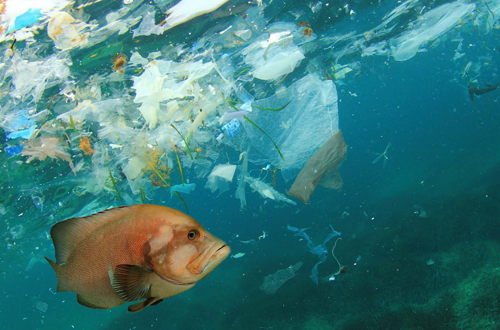G7 performance on oceans
With our oceans threatened from all sides, Hélène Emorine, director, Paris office of the G7 Research Group, analyses the G7’s past performance to draw key lessons on how Biarritz can most effectively respond to the ocean crisis
Oceans are vital for our planet: they produce approximately 80% of the world’s oxygen, provide the primary source of food for more than a billion people and control the climate. Yet oceans are threatened from all sides, by disappearing fish stocks and coral reefs, increasing global warming, rising sea levels, excessive human use, and the destruction of ocean life and coastal habitats. By 2050, there will be more plastic than fish in our oceans.
The threats facing oceans do not respect national state boundaries. Effective collaboration at the international level is a necessity. France’s President Emmanuel Macron has made protecting oceans a priority for the G7 Biarritz Summit, building on the momentum created by the 2018 summit where all G7 members recognised the direct impact of global temperature rise on oceans and produced the Charlevoix Blueprint and the Ocean Plastics Charter (without the United States and Japan).
France must demonstrate ambitious leadership to drive the G7 to bold and effective collaborative action. Analysing the G7’s past performance on oceans provides key lessons on how Biarritz can most effectively respond to the ocean crisis.
Conclusions
The G7 first addressed oceans in 1985, recognising that the protection of freshwater must be strengthened. Its oceans agenda has risen in importance and broadened to include the environment, maritime safety, fisheries, climate change, energy and disaster risk management.
Yet the G7’s governance of oceans is inconsistent and subject to peaks and dips. In 1987, G7 members dedicated 337 words to oceans, yet the following year deliberations decreased to 61 words. In 1990, G7 attention peaked at 336 words, dropped to 243 words in 1991, 149 words in 1992, 94 words in 1993 and none in 1994. This inconsistent pattern has continued with the number of words addressing oceans rising in 2003 to 1,073, dipping to zero in 2004, and since then remaining uneven.
The 2018 summit may represent a turning point for the G7 and oceans with an overall peak of 1,916 words, the most ever dedicated to oceans. There were two documents devoted entirely to oceans, the Charlevoix Blueprint and the Ocean Plastics Charter.
Commitments
Since its creation in 1975, the G7 has made 176 collective, future-oriented, politically binding commitments related to oceans, well below the average number of commitments per issue as identified by the G7 Research Group. The first oceans commitment was made in 1986 on maritime security. The following year, the G7 recognised its responsibility to “tackle effectively environmental problems of worldwide impact” such as water pollution. The number of commitments peaked in 2003 with 81 and declined with none in 2007 or in 2010.
Prior to 2018, the G7 made 89 ocean commitments. The 2018 summit, with a renewed focus on oceans, spiked to 84 commitments, representing an almost 100% increase.
Compliance
While commitments are important, they are only effective if they are complied with. The G7 Research Group has assessed five of the 176 ocean commitments for compliance by G7 members. Overall, compliance averages 79%, higher than the 75% average across all issue areas, indicating that the G7 is an effective forum for global oceans governance. The lowest compliance was 75% for the 2003 summit. The highest compliance was 83% at the 2002 summit. Six months after the 2018 summit, compliance was also 83%.
Corrections
G7 performance on oceans is inconsistent. The 2018 summit produced, for the first time, two stand-alone documents on oceans, and an almost 100% increase in the number of commitments. This unparalleled peak can be linked to the shock-activated vulnerability caused by the increasing number of environmental crises as well as growing global attention to marine plastics. This performance also suggests that the 2018 presidency’s decision to host, for the first time, a meeting with the environment, oceans and energy ministers provided the necessary political drive and degree of interdepartmental cooperation to foster ambitious action.
Yet peaks in the G7 ocean performance are often followed by dips in attention and performance. Biarritz must not rely too heavily on the performance of the 2018 summit, but use it as momentum to drive further ambitious, collective action in a collaborative manner, involving all departments of G7 members involved in the closely connected issues of oceans, climate change and energy.
For more information click here












